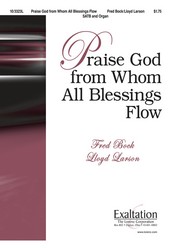- |
User Links
All Creatures of Our God and King
Hymn Information
- First Line
- All creatures of our God and King
- Author
- Francis of Assisi (1225)
- Translator
- William H. Draper (1910 c., alt.)
- Tune Name
- LASST UNS ERFREUEN
- Adapter and Harmonizer
- Ralph Vaughan Williams, 1872-1958 (1906)
- Tune Source
- <cite>Auserlesen Catholische Geistliche Kirchengesänge</cite>, Cologne, 1623
- Topic
- Creation · Doxologies · God as: Creator · God as: King · Praise of God · Trinity · Elements of Worship: Praise and Adoration
Copyright Information
- Text Copyright
- Public Domain
- Tune Copyright
- Public Domain
- Reprint/Projection Information
- Words and Music: The Words and Music are in the Public Domain; you do not need permission to project or reprint the Words and Music.
Full Text
Scripture References
Thematically related:
- st. 1 = ·
- st. 2 =
- st. 4 =
- st. 5 =
Further Reflections on Scripture References
The text is a meditation on Psalm 145 (although it also reflects Psalm 148 as well as the Canticle of the Three Young Men in the Furnace-an apocryphal addition to Dan. 3). Originally in Italian ("Laudato sia Dio mio Signore"), the text is known as the "Song of All Creatures" and as the "Canticle of the Sun."
Bert Polman, Psalter Hymnal Handbook
Confessions and Statements of Faith References
Further Reflections on Confessions and Statements of Faith References
The God who was active in providing his Son for our redemption, has also been active in the course of history and in the lives of his people. His activity in the course of history began when he created all things. Belgic Confession, Article 12 teaches that God, “when it seemed good to him, created heaven and earth and all other creatures from nothing, by the Word—that is to say, by the Son.” In addition, “God created human beings from the dust of the earth and made and formed them in his image and likeness.”
His activity also includes his constant care for all he has created. “…He watches over us with fatherly care, sustaining all creatures under his lordship” (Belgic Confession, Article 13). Additionally, God reveals himself by this “creation, preservation and government of the universe, since that universe is before our eyes like a beautiful book...” (Belgic Confession, Article 2).
We also believe that God’s mighty acts are revealed “in the unfolding of covenant history…witnessing to the news that Our World Belongs to God and he loves it deeply” (Our World Belongs to God, paragraph 33). Primary among these actions in the unfolding of covenant history is “the long road of redemption to reclaim the lost as his people and the world as his kingdom” (paragraph 18). As God’s people observe his work in their lives and in history they respond with praise and adoration.
All Creatures of Our God and King
Call to Worship
All Creatures of Our God and King
Tune Information
- Name
- LASST UNS ERFREUEN
- Key
- D Major
- Meter
- 8.8.8.8.8.6.4.4.4
Recordings
Musical Suggestion
- Stanza 1: Choir sings hymnal version.
- Stanza 2: Men sing unison phrases; all sing harmony phrases.
- Stanza 3: Women and children, or children only, sing unison phrases; choir on harmony.
- Stanza 4: Choir sings hymnal version.


 My Starred Hymns
My Starred Hymns






